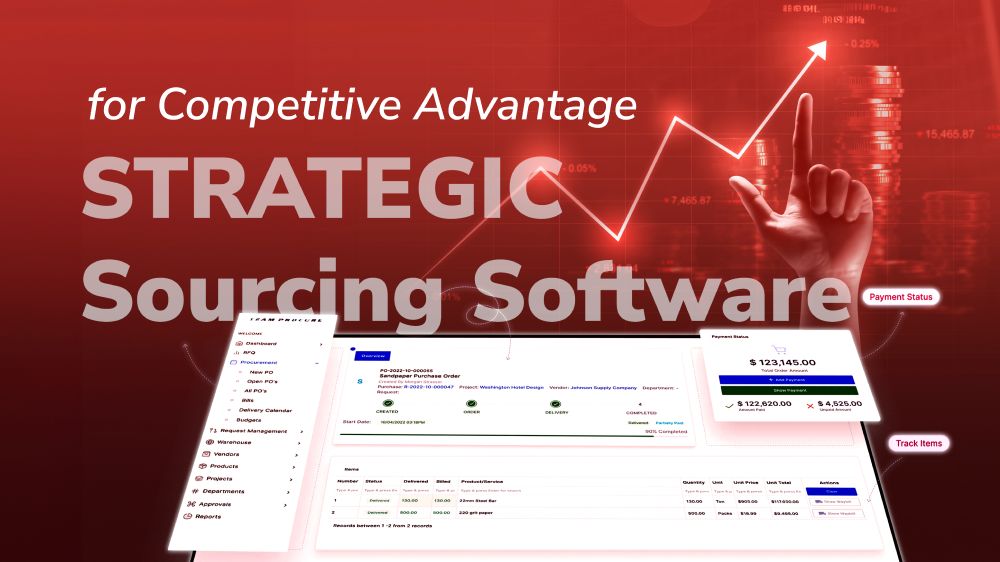In-house Vs. Outsourcing Software Development: Pros & Cons

Content Map
More chaptersIn a modern world that is moving and advancing constantly, technology and innovation are the two elements every business needs to pursue to stay competitive. Software solutions represent the dynamic fusion of these two “X factors. “Yet, as organizations of all sizes and shapes swiftly pivot to align with current trends, they inevitably have to grapple with their own surging demand for software development over time. Beyond the technical prowess or extensive experience, the escalating software development costs may turn out to be a pressing concern.
Oftentimes, business owners are left in a dilemma – whether to have an internal team to create software of their own or outsource development processes to a third party?
Companies are now starting to look for an alternative solution for their in-house employees, which can be an onshore, nearshore, or offshore software development team (also known as offshore development center – ODC). Around 80% of the world’s largest 500 companies depend on outsourced workforces to handle their software development needs. More and more tasks are being delegated to Latin America, Eastern Europe, and Asia, with China, India, and Vietnam – a new key player in the software outsourcing field.
Still, another question comes up: Is software outsourcing really the answer for MY business? Well, the answer is: It depends. First, let’s look over what in-house software development and outsourcing software development are, how these two strategies differ, and the advantages and disadvantages of each. Only then will you be able to determine the most suitable answer for YOUR business?
In-house Software Development

As you think, internal or in-house software development simply means you assemble a dedicated team of project managers, software developers, testers, UI/UX designers, QA engineers, system analysts, etc. They are recruited as permanent staff and work in your office. They might be able to work from home or anywhere. But still, they can arrive and work onsite most of the time for the best communication and collaboration, and you have complete control over them.
To build a full-fledged team of in-house developers, you must go through the normal hiring process of any full-time employee, from screening, assessing, interviewing, onboarding, and training to adapting. These in-house engineers provide all the benefits for official employees, including insurance, vacation days, project bonuses, meal plans, etc., according to your company’s standards.
Pros of Having an In-house Development Team
Business Priority
As the team solely works for the business, its priority is on the core business activities. All your tasks will be prioritized and of the highest possible quality based on your hires who are scanned and tested by you before the job is handed out. Tasks are also given out and changed on the spot if needed, at no additional charges. Your team also works alongside their other colleagues. Hence, they can get the best support possible when issues arise.
Cultural Fit
Your team belongs to the company, hence, it will share the company’s culture. Developers that work for your company’s needs will eventually understand and share the same values your company holds. It is also easier for them to communicate and share their concerns if any, and figure out the fastest way to solve all problems. The company’s success is also its success.
Constant Communication

Whether you have to change a function, or moving to a different task, or changing the direction of the whole project - your in-house experts can handle that for you. All issues and adaptations are done constantly without issues.
Direct communication also helps cease all miscommunications and make the entire development process transparent and thorough. Having the same office hours as the rest of the company also increases efficiency and avoids wasting time.
No Re-Introduction
Having an in-house team means you only have to go over your priorities and values at once, well, per hire, as they will stay with you long term. You don’t need to ice break again or go through every past project for them to gain a deep understanding of your future goals, your current business goals, or your past successes. It’s also easier to mix and match tasks as they are more familiar with your company’s needs.
Enhanced Security
The top concern that all companies have with third parties is the security of information. With in-house teams, you know that there is less chance the information is leaking outside of the organization.
You have more control over what your employees do than IT experts thousands and thousands of miles away. You can also run a background check before every hire, which reduces the chance of information leakage. This is vital, especially if your company relies heavily on being the first in the market to succeed.
Cons of Having an In-house Development Team
High Costs

The main reason why companies are turning away from having an in-house development team is because of costs. Especially for the IT industry, experts in the field can cost up to 10 times more compared to hiring an outsourcing team.
You also have to consider the cost of office space, taxes, software, hardware, benefits, and more. The company also has to provide ongoing training for each employee, as well as making sure that the employee fits in with the culture and is comfortable with the company.
Turnover and Retention
Yes, HR’s nightmare: Turnover and Retention. Since a lot of software experts like to experiment and try new things, the turnover rate is quite high compared to many other professions. This doesn’t help with the fact that talented developers are compared to a gold jar and are also sought after by multiple companies. This brings up the time and costs for re-hiring, re-training, lower efficiency, and, sometimes, a pause of a software development project.
Limited Talent Pool
If you are located in a high-tech country, you are competing with thousands of other companies for human resources. The shortage of tech talent has become chronic in the IT industry. This might be a losing battle as the costs raise higher and higher for better quality hires. You need to look elsewhere, but where?
Software Development Outsourcing

On the other hand, software outsourcing means that you partner with a service provider to build a dedicated development team on your project requirements or take care of the entire project lifecycle. These outsourcing companies are referred to as partners. The outsourcing partner can be situated in the same region or another country, which may be in close proximity or quite distant from the client. Depending on the location, the external team can be categorized as onshore, nearshore, or offshore.
When the concept just came out, many people still questioned it. But now, it has become an unspoken rule of success in today’s IT industry. Most development projects roll out successfully, which clears off all the previous doubts about outsourcing equals less quality, or cutting costs and compromising quality.
In the current momentum of technological advancement, outsourcing development is shifting from an option to a must. Now, decision-makers are forced to make moves that will increase their company’s growth as competitors are switching to various outsourcing models, and they may fall behind if they take the wrong turn. At least one thing can be done to ensure partnering with outsourcing providers for resources is suitable for a specific case of business or not: To understand the benefits and also potential risks when outsourcing.
Pros of Contracting an Outsourced Software Development Team
Cost Flexibility
By hiring experts from another country that usually has lower labor costs, your company can cut down on costs. The leverage of the difference in salary range between one place and another enables access to the same quality for better prices. Hold on. This does not mean you are underpaying your staff.
Some people may misunderstand how outsourcing works. You are actually paying the right wage or even higher salary than normal. The point is that their labor costs are just cheaper due to being in a different country. Rest assured that the cost disparity will not affect their quality of life at all. You should also consider other costs related to hiring, such as rent, training, rehiring, benefits, etc.
Wide Knowledge Base
When you contract out an outsourced development team from a third-party company, you are able to access specialized skills and experience that may not be available in your organization, or broader, your local market.
It is like working with hundreds or even thousands of skilled engineers and professionals who have been through multiple projects with years of experience under their belts. You will have all those expert brains contribute to the success of your project.
Huge Talent Pool

Outsourcing your software needs means you can reach another part of the world, hence unlocking direct access to the global pool of tech talent.
Most of the top software development countries have a high concentration of IT experts, and they are equally skilled and trained compared to any other IT expert, if not more. You also don’t have to deal with any of the HR hassles - your third-party partner can do all that for you.
Scalability
Are you trying to hire a team for just one project? You don’t have to worry about the staff after the project is over. If there is a need to expand the size of the team mid-way, that is also not a problem. Having an outsourced team gets rid of all your scaling troubles and gives you the time to focus on what you need the most: Strategy and goals for your business.
Decrease Time-to-market
Having one or several outsourced teams managed and run by another party outside your organization, business owners can cut down on hiring and training time. In a world where fast adaptation to the latest trends is vital to success, shortening the time to market is a must for staying competitive.
Your outsourcing provider and its teams can work around the clock to fulfill all the requirements and push the final product to market earlier. The team size can also be adjusted depending on your goal and the time limit for the project.
Cons of Contracting an Outsourced Software Development Team
Security Concerns

After data has become a new oil, it is only natural that data security becomes a top concern for any company or organization, especially when they have to entrust their business processes with another firm or external team. You may not feel well-protected as the outsourced team might not be affected as much as you do when problems happen. In the worst scenario, the impact will heavily influence your company compared to theirs.
Fortunately, a reputable outsourcing partner puts your concerns at ease by providing security protocols, procedures, and policies in place to safeguard confidential information. Strict compliance regulations are strictly followed to guarantee your data safety. Moreover, you need to have a lot of trust going on between your company and the outsourcing agency, and mark that an NDA is needed before starting any project.
Communication Gaps
Communication is also one of the top concerns when it comes to outsourcing, and it is justified. Working in the same office doesn’t even stop miscommunications, so imagine working with someone from the other side of the world. You probably only have a few working hours, and you need to communicate everything properly in those few hours. If there is any problem, it will take a while to solve and alert both sides.
You probably don’t work in the same time zone, and you might have daily meetings, but are they enough? In outsourcing, time zone differences, cultural diversity, and language barriers are the potential factors that may put communication across teams at risk.
Quality Management
Since most vendors have several projects going on at once, it is harder for them to concentrate on your project nor give it the highest priority. You might be afraid of your vendor cutting corners, or not keeping up to their end of the deals. That is why companies need constant communication with their vendor and daily report on all on-going tasks.
So, In-house Development or Outsourcing Software Projects?
In-house vs. outsourcing software development - it is a hard decision to make, isn’t it?
This question should be answered by you and no one else. Do you think your business would benefit more from having an in-house team or outsourcing a dedicated team? Do the benefits outweigh the risks?
To make sure you can get the best results for your project if you decide to go with an outsourcing company, make sure to do a proper background check on all your potential vendors and have a face-to-face meeting with each and every one of them. If possible, contact their old clients for a testimony. This might not reduce the risk to zero, but it’s worth a try.
If you have any other questions regarding custom software development outsourcing services, the experts at Orient Software are always ready to answer all your doubts. Send us a quote and get a reply within three working days. With almost 20 years in the market, we can guarantee all your software needs.







